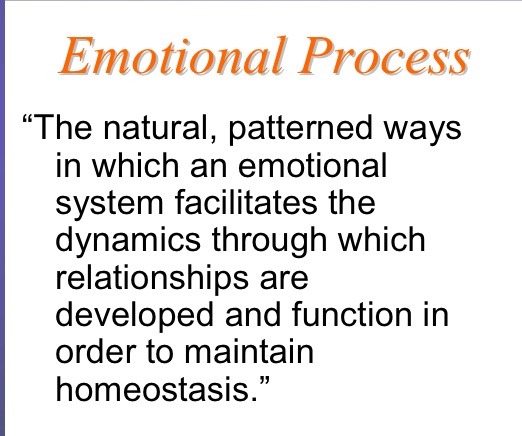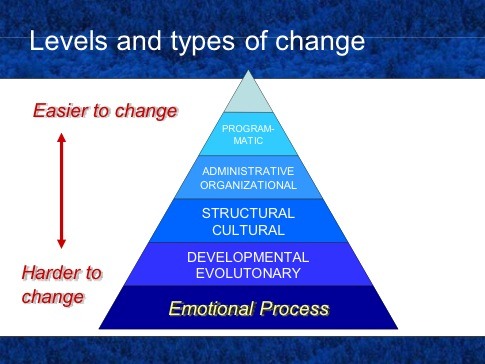This too is natural in that the nature of emotional process in any system includes the force of homeostasis, and homeostatis resists change at the most fundamental levels: those that upset the balance of dynamics that have established patterns of relationships, structures of power, and those systemic structures and processes that inform identity (like culture and practices).

At the conference I attempted to offer some nuance in our approach to understanding change by depicting types and levels of change. An important question for the leader becomes, "what kind of change am I trying to bring about here?" The graph below depicts different kinds of change according to their level from easy to bring about to harder to achieve. From top to bottom these levels of change take a short time to bring about (e.g., programmatic) to a long time to realize (e.g., evolutionary).
The lower on the pyramid (which may depict a metaphorical iceberg) the type of change the more it is a type of "fundamental change," the kind that affects emotional process.

Change at any level invites anxiety if not reactivity. Depending on the resilience of the system, change at any level may bring a minimal or a great deal of anxiety and reactivity. Systems with a low tolerance for change can experience major crises with attempts at even benign programmatic changes.
Few of us remain in work and ministry systems long enough to bring about change at the more essential levels, those that impact developmental or evolutionary change, which shifts the emotional process in the system, including homeostasis. The typical tenure of most pastors is four to five years. For program staff, in most congregations, even less. The system in which we remain the longest is our biological families, with our family of origin providing perpetual influence through the power of multigenerational transmission of emotional process.
I suppose one implication is that if we desire to make meaningful changes of significant influence, the place to put our energies is in our families.
Copyright (c) 2010, Israel Galindo




ReplyDeleteoverseas education consultants in hyderabad for usa do you want to study in abroad today or in the next intake. we are the best and top rated study abroad consultancies in india with overseas education consultants in ameerpet good visa assurance.we help you in filing the f1 visa for you in very less time. we are also help you with information needed to apply for the college university.